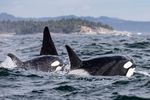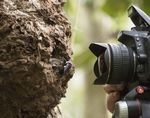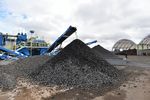Environmental Matters for - 2019: The Year in Review - Integrate Sustainability
←
→
Page content transcription
If your browser does not render page correctly, please read the page content below
Integrate Sustainability 6 January 2020
Environment
Environmental Matters for
2019: The Year in Review
Briana Diopenes – Graduate Environmental Specialist
Our Earth and the environment had been one of the most talked-about topics of 2019
with much of the environmental impacts being the focus of these discussions. Early
last year, thousands of fires burned over 7,200 square miles of the Brazilian Amazon
rainforest, home to 10% of all known plant and animal species around the world
(Borunda 2019) (Timson 2019). The increasing frequency of exceptional tides
resulted in the second-highest Acqua Alta (high water) recorded in history, flooding
the city of Venice in November of 2019 (Berry 2019). By the end of the year, we have
seen bushfires spread across our own country, as the bushfire risks have intensified
all over Australia due to long drought, dry fuels and soils, and extreme heat (Climate
Council 2019). With a lot of negative news surrounding the climate changes,
biodiversity impacts and pollution, we must not forget the positive achievements
made across the world or the wonderful scientific discoveries that occurred in 2019.
Rediscovered species
2019 was a year of great discoveries in the natural world as two species listed
on Global Wildlife Conservation’s list of top 25 most wanted lost species have been
rediscovered, providing a big hope for the conservation of biodiversity all around the Change in 2019
world.
The World's Biggest Bee that was once thought to be extinct has been found alive in
the lowland rainforests of North Moluccas, Indonesia. Wallace’s giant bee (Megachile
pluto), four times the size of a honeybee, gets its name from its original discoverer,
Alfred Russel Wallace. Wallace collected the bee while exploring Indonesia’s North
Moluccas islands in 1858; the last sighting was made by the entomologist Adam
Messer in 1981. 38 years later, nature photographer, Clay Bolt, and entomologist, Eli
Wyman formed a search party that embarked for Indonesia in January. After going
missing for nearly four decades, the species has now been rediscovered in its native
Indonesia (Buehler 2019).
A lot of positive change has
come about in the past year to
help increase the protection of
biodiversity and minimise
environmental impacts.
Figure 1: Bolt and Wyman in search of Wallace's Figure 2: Capturing the first ever photograph
Giant Bee (Megachile pluto) of Wallace's Giant Bee (Megachile pluto)
The Southern Institute of Ecology and the Leibniz Institute for Zoo and Wildlife
Research have also rediscovered a wildlife species. The silver-backed chevrotain
(Tragulus versicolor) is a deer-like species the size of a rabbit with a silver sheen.
Also called the Vietnamese mouse-deer, the species was last recorded more than 25years ago and is the first mammal rediscovered on Global
Figure 3: The Silver-Backed Chevortian
Wildlife Conservation's list of top 25 most wanted lost
(Tragulus versicolor) caught on a
species. The first-ever comprehensive survey on the species is
remote sensing camera trap
being carried out to develop and implement a conservation
action plan. A team of scientists are working to determine the
size, distribution and stability of the population, and to
understanding the threats to its survival (Global Wildlife
Conservation 2019). The conservation action plan aims to
strengthen enforcement and protection of the species across
its range, building on the increased enforcement already put
in place at the site of rediscovery.
Saving the Northern White Rhinoceros
The last two Northern White Rhinos (Ceratotherium simum cottoni) left worldwide, Fatu and Najin, are both
female and living at the Ol Pejeta Conservancy in Kenya (Karimi and Feleke 2019). In 2018 the last male, Sudan,
died raising fears of extinction for the subspecies (Karimi and Feleke 2019). After successfully harvesting 10 eggs
from Najin and Fatu, the international consortium of scientists and conservationists announced in August that 7 of
the eggs had been artificially fertilised through ICSI (Intra Cytoplasm Sperm Injection) (Karimi and Feleke 2019).
The eggs were extracted from Fatu and Najin and fertilised with frozen sperm from two different northern white
rhino bulls, Suni and Saut, both deceased. In early
September, Ol Pejeta Conservancy announced two viable
embryos are being stored in liquid nitrogen, waiting to be
transferred into a surrogate mother in the near future.
Since neither Fatu or Najin can carry a pregnancy,
international scientists have created the two embryos to
later be transferred to the Southern White Rhino surrogate
mothers (Ceratotherium simum). A milestone in assisted
reproduction for the Northern White Rhino population has
returned hopes of saving the endangered animals and may
be a pivotal turning point in the fate of these magnificent Figure 4: Dr Susanne Holtze following the removal of eggs
animals (Dockrill 2019). from a female northern white rhino.
Western Australia Modernising the Environmental Protection Act
The Environmental Protection Act 1986 (EP Act) was introduced to Western Australia over 30 years ago. It has
been an effective framework for protecting the environment and ensuring that the impacts of significant proposals
are assessed and managed (Government of Western Australia 2019). Western Australia is home to some of the
world’s most biologically diverse flora and fauna as well as some of the world’s most significant natural resources
(Department of Water and Environmental Regulation 2019). It is for this reason that the McGowan Government
has expressed the importance of finding a balance between delivering the full economic potential of our resources
while protecting human health and the environment. In October, a discussion paper was released on ‘Modernising
the Environmental Protection Act’, with the intent to promote conversation around some of the proposed
amendments (Government of Western Australia 2019). Some of the key changes proposed include (Department of
Water and Environmental Regulation 2019):
• Improving clearing provisions to deliver efficient, targeted, flexible and transparent outcomes;
• Improving efficiency by the accreditation of environmental practitioners to certify documents prior to
their submission; and
• Enabling cost recovery of environmental impact assessment and services provided by the State on
behalf of the Commonwealth Government through bilateral agreements.
These amendments address a number of issues raised by many reviews made since 2006 and aim to promote best
practice on environmental protection and sustainable development (Government of Western Australia 2019).Zero Carbon Law in New Zealand
Over in New Zealand, parliament has passed a landmark legislation that
protects the country’s commitment to the Paris Agreement and
establishes New Zealand as one of the few countries in the world with a
legislated commitment to meeting the goals of the Paris Agreement. The
bill sets a trajectory for reducing emissions and introduces a range of
complementary measures, including the establishment of an independent
Climate Change Commission to recommend guidance to the NZ
government on reducing emissions and adapting to the impacts of Figure 5: New Zealand Prime Minister Jacinda Ardern
climate change, as well as determining emissions budgets. The New embraces Climate Change Minister James Shaw in
Parliament
Zealand bill will see the country achieve zero net carbon dioxide
emissions by 2050 by committing to establishing policies consistent with limiting global warming to just 1.5°C
(Mazengarb 2019).
Australia Bans Waste Export
There has been increasing concern in Australia and around the world
about plastic pollution in our oceans. On 9 August 2019, the Council of
Australian Governments (COAG) agreed to establish a timetable to ban the
export of waste plastic, paper, glass and tyres in Australia. The agreement
reflects the need to ensure that exports of waste do not cause harm to
human health and the environment while building Australia’s capacity to
generate high value recycled commodities and associated demand
Figure 6: Recyclable waste pile
(Australian Government 2019). Commonwealth, state and territory
governments have agreed that these waste materials that have not been processed into value-added materials
should be progressively banned from export from Australia by no later than 30 June 2022, starting from 2020
(Department of Environment and Energy 2019).
Figure 7: Killer whales (Orcinus orca) in the Wild
Canada’s “Free Willy” Bill
On June 10, Canada’s House of Commons passed Bill S-203, or the
Ending the Captivity of Whales and Dolphins Act. With this bill,
Canada has made it illegal to catch and hold whales, dolphins and
porpoises in captivity, banning the practice of keeping cetaceans in
captivity in the country. The new legislation also prohibits the trade,
breeding and collecting of reproductive materials from the animals,
such as sperm or embryos. The only exceptions to these provisions
will be in cases of rescues and rehabilitation, licensed scientific
research, or in the “best interests of the cetacean’s welfare”. The bill also makes it illegal to participate in the
competition, exhibition, or any other events in which captive whales or dolphins are used for performance for
entertainment purposes. Those who violate sections of this law can be fined up to $200,000 (Mongabay 2019).
Other Positive Facts of 2019
A lot of change has come about in the past year to help increase the protection of biodiversity and minimise
environmental impacts. Read about some other positive news of 2019;
Roam Recycling Plastic Bottles for Subway Fare
Sea turtles are making a huge comeback, with their populations increasing by 980%, thanks to the Endangered
Species Act (Kiger 2019).
Humpback Whale Recovery
The Western South Atlantic Humpback Whale population has come back from the brink of extinction. Thanks to
conservation efforts, they’ve gone from a few hundreds to 25,000 (Rech 2019).Thailand Replaces Single Use Plastics Wrap With Banana Leaves
Thailand supermarkets say no to plastic packaging and wraps produce in banana leaves (Sanchez 2019).
Nigeria Recycles Plastic for School Fees
In Lagos, Nigeria The Recycle Pay project allows parents to cover their kids’ school fees by collecting and bringing
plastic waste to recyclers (McCarthy 2019).
Sea Turtles Recovery
Sea turtles are making a huge comeback, with their populations increasing by 980%, thanks to the Endangered Species
Act (Kiger 2019).
Peru Bans Palm Oil Driven Deforestation
Peru has committed to ending Pal oil-driven deforestation by 2021. A “momentous win” for wildlife and sustainable
agriculture (Webber 2019).
Should you or your business have any questions regarding the protection of biodiversity or require any assistance with
minimising environmental impacts, please contact Integrate Sustainability on 08 9468 0338 or enquir-
ies@integratesustainability.com.au.
References
Australian Government . 2019. COAG Waste Export Ban Consultation. Accessed December 4, 2019. https://
Integrate Sustainability www.environment.gov.au/protection/waste-resource-recovery/coag-waste-export-ban-consultation.
Berry, Nikki. 2019. Venice floods: Climate change behind highest tide in 50 years, says mayor. November 13. Accessed December 4,
Primary Business Address 2019. https://www.bbc.com/news/world-europe-50401308.
Borunda, Alejandra. 2019. See how much of the Amazon is burning, how it compares to other years. August 29. Accessed
Lower Ground Floor December 12, 2019. https://www.nationalgeographic.com/environment/2019/08/amazon-fires-cause-
3 Richardson St deforestation-graphic-map/.
West Perth, 6005 Broom, Douglas. 2019. In Rome you can swap plastic bottles for metro tickets. August 9. Accessed December 17, 2019. https://
www.weforum.org/agenda/2019/08/rome-recycling-plastic-bottles-subway-fare/.
Western Astralia Buehler, Jake. 2019. World's Biggest Bee, Once Thought Extinct, Has Been Found Alive. February 22. Accessed December 4, 2019.
https://www.gizmodo.com.au/2019/02/worlds-biggest-bee-once-thought-extinct-has-been-found-alive/.
Phone: (+618) 9468 0338 Climate Council. 2019. The Facts About Bush Fires and Climate Change. November 13. Accessed December 4, 2019. https://
E-mail: enquiries@integratesustainability.com.au www.climatecouncil.org.au/not-normal-climate-change-bushfire-web/.
Department of Environment and Energy. 2019. "Banning exports of waste plastic, paper, glass and tyres." Department of
Environment and Energy. November. Accessed December 16, 2019. https://www.environment.gov.au/system/
files/consultations/bf403fda-b6d7-4476-9c6f-5627502d52a4/files/waste-export-ban-discussion-paper-
november-2019.pdf.
Department of Water and Environmental Regulation. 2019. Modernising the Environmental Protection Act Discussion Paper.
Discussion Paper, Joondalup: Government of Western Australia .
Dockrill, Peter. 2019. Update: The First Harvested Northern White Rhino Eggs Have Just Been Fertilised. August 27. Accessed
December 17, 2019. https://www.sciencealert.com/update-those-first-northern-white-rhino-eggs-have-just-been
-fertilised.
Elizabeth. 2019. Forget all the Bad News, Here are the Best Facts from 2019 (36 Photos). December 9. Accessed December 17,
2019. https://thechive.com/2019/12/09/forget-all-the-bad-news-here-are-the-best-facts-from-2019-36-
photos/.
Global Wildlife Conservation. 2019. Found: Miniature Fanged ‘Deer’ Rediscovered Tiptoeing Through Vietnam’s Coastal Forests.
November 11. Accessed December 04, 2019. https://www.globalwildlife.org/press/found-chevrotain-miniature-
fanged-deer-rediscovered-tiptoeing-through-vietnams-coastal-forests/.
Government of Western Australia . 2019. Feedback sought on improving environmental legislation. October 28. Accessed
December 4, 2019. https://www.mediastatements.wa.gov.au/Pages/McGowan/2019/10/Feedback-sought-on-
improving-environmental-legislation.aspx.
Karimi, Faith, and Bethlehem Feleke. 2019. There are 2 northern white rhinos left worldwide. Scientists created embryos to save
the animal from extinction. September 12. Accessed December 17, 2019. https://edition.cnn.com/2019/09/12/
africa/northern-white-rhino-embryos-trnd/index.html.
Kiger, Patrick J. 2019. Sea Turtles Are Making a Huge Comeback, Thanks to the Endangered Species Act. January 29. Accessed
December 17, 2019. https://animals.howstuffworks.com/endangered-species/sea-turtles-are-making-huge-
comeback-thanks-to-endangered-species-act.htm.
Mazengarb, Michael. 2019. New Zealand passes historic zero carbon bill with near unanimous bipartisan support. November 8.
Accessed December 4, 2019. https://reneweconomy.com.au/new-zealand-passes-historic-zero-carbon-bill-with-
near-unanimous-bipartisan-support-33500/.
McCarthy, Joe. 2019. Nigerian Parents Are Paying Their Kids' School Fees by Picking Up Plastic. June 11. Accessed December 17,
2019. https://www.globalcitizen.org/en/content/nigeria-plastic-recycling-school-fees/.
Mongabay. 2019. Canada passes ‘Free Willy’ bill to ban captivity of all whales, dolphins. June 11. Accessed December 17, 2019.
https://news.mongabay.com/2019/06/canada-passes-free-willy-bill-to-ban-captivity-of-all-whales-dolphins/.
Rech, Dominic. 2019. After being pushed close to extinction, this humpback whale population is making a comeback. October 17.
Accessed December 17, 2019. https://edition.cnn.com/2019/10/17/world/humpback-whale-recovery-intl-scli-
scn/index.html.
Sanchez, Rudy. 2019. Thailand Supermarket Says No To Single-Use Plastics, Wraps Produce In Banana Leaves. March 29. Accessed
December 17, 2019. https://thedieline.com/blog/2019/3/29/thailand-supermarket-says-no-to-single-use-
plastics-wraps-produce-in-banana-leaves.
Timson, Lia. 2019. What's happening in the Amazon? November 7. Accessed December 12, 2019. https://www.smh.com.au/
world/south-america/what-s-happening-in-the-amazon-20190822-p52jvd.html.
Webber, Jemima. 2019. Peru Passes 'Momentour' Ban on Pal Oil Deforestation. August 20. Accessed December 17, 2019. https://
www.livekindly.co/peru-passes-momentous-ban-palm-oil-deforestation/.You can also read



























































